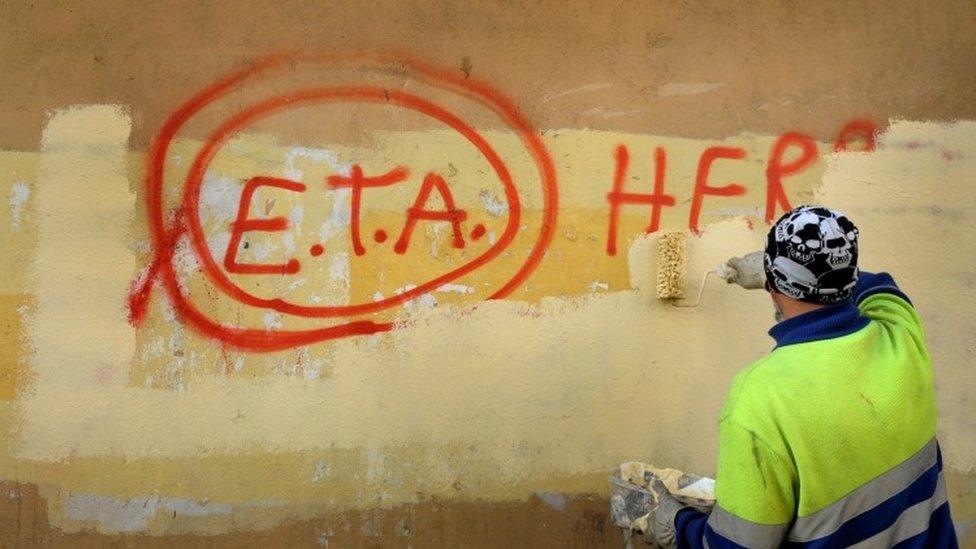Viewpoint: Eta move raises hopes and stakes
- Published
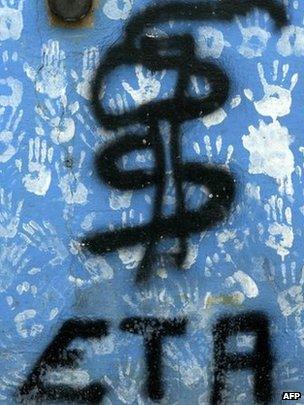
Eta have waged an armed campaign for independence of the Basque Country for four decades
Inigo Gurruchaga, London correspondent for Basque newspaper El Correo, argues here that the announcement by Eta of a "definitive cessation of its armed activity" may signal the end of the group's long and violent campaign to achieve independence for the Basque Country.
Eta's statement calls on the governments of France and Spain to engage in dialogue to solve the consequences of conflict.
Given the unprecedented wording of this declaration, it would be difficult for a Spanish government not to explore Eta's motivation to disarm and disband.
But which government should take the decision to engage Eta in dialogue?
A general election will be held in Spain on 20 November and polls suggest the Socialist Party will be roundly defeated by the conservative opposition Popular Party.
Prime Minister Jose Luis Rodriguez Zapatero said the "new phase" would be left to the parliament and government formed after the election.
In the past, politicians and citizens grew accustomed to seeing Eta use a truce as a breathing space before resuming violence but there is no doubt that many Spaniards can see real change happening now.
Momentum
It has been more than two years since the group committed its last murder and a "permanent, general and verifiable ceasefire" was announced last January.
Eta fund-raising activities have fallen and street protests by its supporters have not been seen for many months.
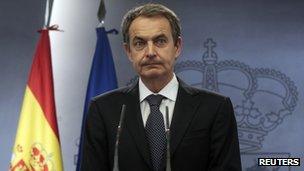
Spain is holding a general election on 20 November
International statesmen and mediators - including several with experience of the Northern Ireland peace process - joined local political parties in Spain this week to urge Eta to end its attacks and seek dialogue with the Spanish and French governments.
The governments in turn were asked to welcome such a declaration by Eta and engage in dialogue.
The Patriotic Left, the Basque political movement that shares Eta's aims, declared its support and echoed the call.
Eta's statement repeats word for word what was demanded of it but it presents some challenges to the future Spanish government.
The new government in Madrid will want to see if the group is going to offer its dissolution only after the forum for political dialogue proposed by the international mediators is created.
Challenges for Madrid
Since 1998, Eta has declared one "unlimited" and two "permanent" ceasefires.
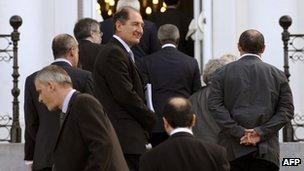
International negotiators gathered in San Sebastian to resolve the conflict
All previous ceasefires collapsed because successive Spanish governments refused to engage in political negotiation while Eta remained active and armed.
Eta says in its statement that the new political times have been reached by "the struggle of many years", ignoring appeals to acknowledge the damage done to its victims.
Nor do they apologise for waging a terrorist war that gained in intensity precisely when Basques and Spaniards enjoyed long sought-after democratic freedoms.
Issues like prisoners and disarmament would present great difficulties to any Spanish government.
Madrid can hardly contemplate in the short term their release, or the granting of legal protection to those who would co-operate with government officials to hand over weapons.
Foray into politics
In recent years Eta has suffered a steep decline in its military capability.
Co-operation between French and Spanish security forces has dismantled logistical networks established by Eta in France.
Through the years, its leaders have been arrested and units dismantled in what used to be a safe haven from which to launch operations in Spanish territory.
Already in a position of extreme military weakness, Eta lost political support after the banning by the Spanish courts of its electoral wing, Batasuna, in 2002.
In 2006, Eta aborted an embryonic peace process with a car bomb in Madrid airport.
Leaders of the Patriotic Left came to the conclusion that the armed struggle was isolating the movement and counter-productive to the cause of independence.
After intense debate, the Patriotic Left gained the support of small nationalist parties to form a new political front - Bildu - which dissociated itself from violence.
It was given legal approval to present lists at local elections earlier this year and attracted higher-than-expected support.
Eta's new declaration could provide an excellent platform for the Patriotic Left in the general election on 20 November.
With an array of local authorities under their control and an aspiration to win seats in the general election, Basque radical nationalists hope to increase support for independence - an aspiration shared by a third of the population, local opinion polls suggest.
If the Patriotic Left goes on to to do well in elections to the Basque parliament two years from now, they will create a dilemma for moderate nationalists: either to join them in a a pro-independence coalition or settle for autonomy in a coalition with pro-Spanish parties.
- Published20 October 2011
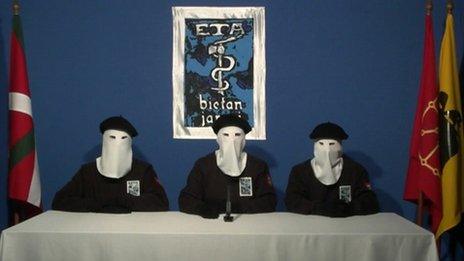
- Published20 October 2011
- Published17 October 2011
- Published16 May 2019
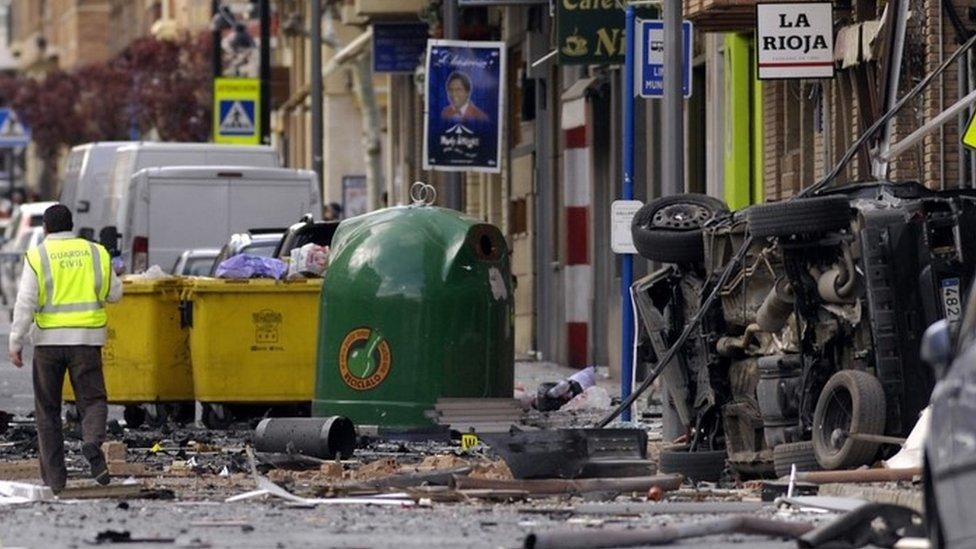
- Published8 April 2017
